
Kod: 04954555
Strategic Entrepreneurship
Autor Michael A. Hitt, R. Duane Ireland
Michael Hitt is one of the leading names in strategic management in the US. He is former president of the Academy of Management and is on the Board of the Strategic Management Society. He has sent us the attached proposal, which i ... więcej
- Język:
 Angielski
Angielski - Oprawa: Miękka
- Liczba stron: 400
Wydawca: John Wiley & Sons Inc, 2004
- Więcej informacji o książce

Zobacz książki o podobnej tematyce
-

Off I Go!: An Acorn Book (Princess Truly #2): Volume 2
112.39 zł -

N Is for Nebraska
54.93 zł -10 % -

Candlelight
120.76 zł -

Mothers-in-Law vs. Daughters-in-Law: Let There Be Peace
57.55 zł -5 % -

World's Wine Markets
840.22 zł -9 % -

Christianity in the Light of Religious Experience
132.45 zł -

Reading Planet - Can I get this? - Red A: Comet Street Kids
30.43 zł
Podaruj tę książkę jeszcze dziś
- Zamów książkę i wybierz "Wyślij jako prezent".
- Natychmiast wyślemy Ci bon podarunkowy, który możesz przekazać adresatowi prezentu.
- Książka zostanie wysłana do adresata, a Ty o nic nie musisz się martwić.
Powiadomienie o dostępności
Wpisz swój adres e-mail, aby otrzymać od nas powiadomienie,
gdy książka będzie dostępna. Proste, prawda?
Więcej informacji o Strategic Entrepreneurship
Za ten zakup dostaniesz 95 punkty
 Opis
Opis
Michael Hitt is one of the leading names in strategic management in the US. He is former president of the Academy of Management and is on the Board of the Strategic Management Society. He has sent us the attached proposal, which is also being considered and bid for by three other publishers (including Wiley and Oxfprd). We will do extremely well to get it. In the meantime I have received some critical comments (below) and suggestions from Rita McGrath, whose book on "The Entrepreneurial Mindset" is one of the key competitors to this. Mikle Hitt will take these on board. His name alone will be sufficient to secure big sales, as Rita McGrath indicates. I have also consulted Howard Thomas (ex-Illinois) now Warwick; Rob Grant and John Child. All have promised a short review but confirmed that a new text by these authors will be a winner (even a hit). I list the competition in this proposal section as have not mastered the BPS form for this. There is a lot out there, but the closest is the McGrath-Mcmillan book with Harvard. This is a really important area of management study and teaching - I would expect this book to sell to advanced undergrads as well as the MBAs. The unique value creating features of "Strategic Entrepreneurship" include: integration of opportunity seeking and advantage seeking behaviors; explanation of resources and their importance for entrepreneurial success; examination of managing resources (acquiring, changing, bundling, and leveraging) to create value; discussion of the importance and facilitation of creativity for entrepreneurial activity; explaining the linkage between radical or disruptive innovation and entrepreneurship; exploration of entry into international markets as a facilitator of entrepreneurial activity; explanation of the effects of participation in external networks on entrepreneurial activity and value creation; examination of the role and effect of strategic leadership on the success of entrepreneurial activity; and, discussion of how strategic entrepreneurship is important for established firms and start-up ventures. "Strategic Entrepreneurship: Seeking Opportunities and Developing Competitive Advantages to Create Value" is written by Michael A. Hitt and R. Duane Ireland. Firms create value by identifying opportunities in their external environments and then developing competitive advantages to exploit them. Successful value creation requires continuous identification of opportunities and subsequent exploitation of those opportunities in the marketplace by building a sustainable competitive advantage. Therefore, strategic entrepreneurship involves simultaneous opportunity seeking and advantage seeking behaviors. Balance is critical for organizational success. Firms able to spot multiple opportunities but incapable of using appropriate and unique competitive advantages to exploit them become bundles of unfilled promise. Similarly, firms with value-creating competitive advantages lacking opportunities to apply them in the marketplace become pockets of unused capabilities. Only when firms combine effective opportunity seeking behavior with effective advantage seeking behavior can they create significant value for stakeholders, including shareholders. On the other hand, firms seeking opportunities without a strategic perspective as well as firms with strong competitive advantages but lacking an entrepreneurial perspective fail. We believe that many firm failures are attributable to these two conditions. Achieving balance through strategic entrepreneurship - Because it is a product of an appropriate balance between opportunity and advantage seeking behaviors, strategic entrepreneurship is the path to sustainable, value creation. Resources, entrepreneurial networks, creativity and innovation, international entrepreneurship, and strategic leadership are the interrelated components of effective strategic entrepreneurship. Mentioned briefly here, we further define each component in the descriptions of the book's individual chapters. The appendix will include several tools useful for analysis and planning (i.e., "Guide for the Development of a Business Plan"); Competition Bygrave, William D. 1997. "The Portable MBA in Entrepreneurship", New York: John Wiley & Sons. This is an edited volume. Professor Bygrave wrote the book's introductory chapter. Scholars known for their work in areas involved with the practice of entrepreneurship (e.g., Financial Projects, Legal and Tax Issues, and Entrepreneurship Economics) wrote the remaining chapters. Oriented to the MBA, Executive MBA, and business practitioner markets (as is our book), this edited volume is concerned only with entrepreneurship. Small businesses are the focus with the objective being to describe what should be done to successfully start, grow, and harvest a small firm. How does our book differ - An obvious difference is that the Bygrave work is an edited volume with contributions from multiple individuals. Edited volumes often lack consistency in terms of writing style and cohesion in terms of explaining the interrelationships associated with a particular phenomenon. This edited volume also lacks sufficient treatment of the strategic management literature (both the academic and practitioner literatures). As such, there is no effort to integrate opportunity seeking with advantage seeking behavior. Lastly, the value of some of the chapter topics (e.g., Entrepreneurs and the Internet) to value creation (the focus of our book) isn't obvious. In "Beyond Entrepreneurship: Turning Your Business into an Enduring Great Company" (Collins, James C., and Lazier, William C. 1995.), New York: Simon & Schuster, the authors rely on many company-specific examples. They discuss actions taken by firms in efforts to remain healthy and achieve long-term success. Healthy firms are successful in the long term and achieve what the authors call corporate greatness. Leadership is seen as a vital to achieving corporate greatness. In particular, the importance of the firm's leaders to establishment of a compelling vision is emphasized in the discussion of effective leadership. The authors argue that the foundation for corporate greatness should be set while the firm is small and flexible enough to adapt to the leaders' values. How does our book differ? Collins and Lazier draw primarily from their work as consultants as the foundation for this book. The large number of examples from a diverse set of companies highlights the source of their arguments and guidelines. Our book will include company-specific examples to demonstrate key points. However, the entrepreneurship and strategic management academic and practitioner literatures are the primary source of our materials. Our contribution is the integration of two streams of thoughts to show how the firm creates value by successfully combining opportunity seeking with advantage seeking behavior. The scope of the two books also differs, in that Collins and Lazier are only concerned with established firms while our arguments show how the use of strategic entrepreneurship creates an entrepreneurial firm for established companies as well as start-up ventures. Moreover, increased value for stakeholders is the outcome of strategic entrepreneurship instead of the less-carefully defined corporate greatness. "Harvard Business Review on Entrepreneurship", (Harvard Business School Staff. 1999), Boston: Harvard Business School Press. This is a compilation of articles from HBR. The focus of this volume is on starting entrepreneurial ventures. Topics considered include those associated with developing a business plan, using it to gain capitalization for the venture, and what companies do to successfully commercialize technologies. The articles chosen for this collection of readings have a bent toward technology-intensive start-ups. How does our book differ? Because of the two authors' long and successful working relationship, the book will have the consistency and cohesiveness that is absent a volume of works by multiple authors. Beyond this, the HBR volume doesn't include articles oriented to advantage seeking behavior. Finally, the collection of articles isn't focused on value creation as the product of integrating opportunity seeking and advantage seeking behaviors. "The Entrepreneurial Mindset: Strategies for Continuously Creating Opportunity in an Age of Uncertainty" (McGrath, Rita G., and MacMillan, Ian. 2000), Boston: Harvard Business Press. In this book, McGrath and MacMillan's core argument is that businesses fail in rapidly changing competitive environments if they don't adopt an entrepreneurial mindset and use the tools associated with it. Uncertainty characterizes the environments firms of all types now face. The book is filled with tools and techniques firms are advised to use in managing entrepreneurially in uncertain business conditions. This book is the closest competitor to the product that we propose. How does our book differ? McGrath and MacMillan have written a successful book that targets our market. As is the case for us, their focus is on integrating entrepreneurship and strategic management activities. However, our focus on integrating the fields is far more direct and explicit. In addition, we discuss provide a more comprehensive treatment of opportunity seeking and advantage seeking behaviors. Our detailed analysis of resources in terms of acquisition, change, bundling, and leveraging offers insights that McGrath and MacMillan do not provide. Moreover, we examine international entrepreneurship and entrepreneurial networks that are largely ignored in their book. "Entrepreneurial Management: Productivity Through Innovation, Raising Capital, Structuring Deals, Successful Strategic Plans", (Calvin, Robert J., 2002), New York: McGraw-Hill. In this book, Calvin has produced a good 'nuts and bolts' book about developing an entrepreneurial firm. He explains the finance and control processes, marketing and sales and business development. The book is filled with tools entrepreneurs can use for analysis. The framework is similar to and built on his other books on marketing and sales. These books are designed for lower level thinking with the primary objective being to train analysts instead of leaders. "How does our book differ? Rather than a 'nuts and bolts' approach, we seek to provide insights for the thinking executive and MBA students. Our book will challenge and satisfy their intellectual curiosity. We encourage entrepreneurs and managers to integrate entrepreneurial and strategic activities and thereby create value for the firm's stakeholders. The level of analysis and content will be higher in our book. Our book is designed to make executives and graduate students Think and then Act in effective ways as opposed to conduct analyses. Our book contributes to the development of strategic and entrepreneurial leadership.
 Szczegóły książki
Szczegóły książki
Kategoria Książki po angielsku Economics, finance, business & management Business & management Business strategy
163.90 zł
- Pełny tytuł: Strategic Entrepreneurship
- Podtytuł: Seeking Opportunities and Developing Competitive Advantages to Create Value
- Autor: Michael A. Hitt, R. Duane Ireland
- Język:
 Angielski
Angielski - Oprawa: Miękka
- Liczba stron: 400
- EAN: 9781405120654
- ISBN: 1405120657
- ID: 04954555
- Wydawca: John Wiley & Sons Inc
- Data wydania: 02. November 2004
Ulubione w innej kategorii
-

Measure What Matters
70.25 zł -14 % -

Playing to Win
90.31 zł -35 % -

Guide to Business Analysis Body of Knowledge (Babok Guide)
318.64 zł -1 % -

Visual Thinking
88.80 zł -23 % -
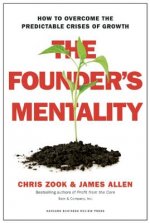
Founder's Mentality
131.75 zł -7 % -
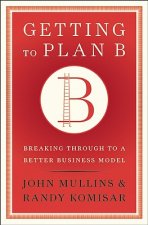
Getting to Plan B
140.31 zł -5 % -

Never Split the Difference
42.13 zł -37 % -

Blue Ocean Strategy, Expanded Edition
131.75 zł -7 % -

Ego is the Enemy
44.14 zł -26 % -
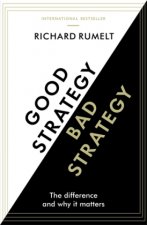
Good Strategy/Bad Strategy
52.41 zł -15 % -

Building Distinctive Brand Assets
160.07 zł -

Sun Tzu's The Art of War
65.11 zł -7 % -

Selling The Invisible
77.31 zł -11 % -

Strategy Safari
85.07 zł -10 % -
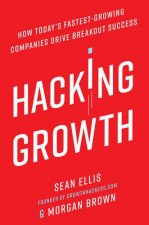
Hacking Growth
70.25 zł -14 % -

Lean Thinking
70.25 zł -14 % -
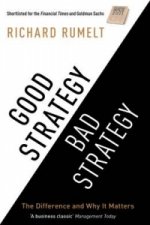
Good Strategy / Bad Strategy
48.98 zł -14 % -

This is Service Design Thinking. Basics - Tools - Cases
126.91 zł -10 % -

How to Make it Happen
61.28 zł -15 % -

Competitive Strategy
79.73 zł -23 % -

Delivering Happiness
41.72 zł -15 % -

Understanding Michael Porter
143.64 zł -6 % -
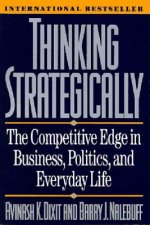
Thinking Strategically
81.54 zł -5 % -

Strategy Beyond the Hockey Stick
118.54 zł -10 % -
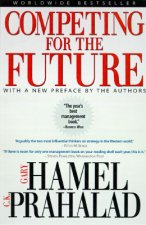
Competing for the Future
116.12 zł -7 % -

Never Eat Alone
123.38 zł -12 % -

22 Immutable Laws Of Branding
52.01 zł -23 % -

HBR Guide to Leading Teams (HBR Guide Series)
92.43 zł -7 % -

Art of Consultancy
98.98 zł -
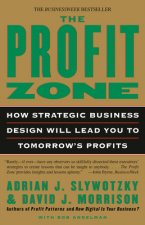
Profit Zone
90.21 zł -

Switch
52.01 zł -23 % -

Infinite Game
71.97 zł -15 % -

Never Eat Alone, Expanded and Updated
64.71 zł -15 % -

Sprint
82.65 zł -14 % -

Lean Startup
123.38 zł -12 % -

Originals
52.41 zł -15 % -
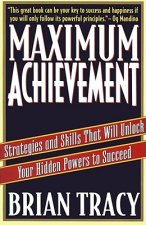
Maximum Achievement
61.28 zł -23 % -

Speed of Trust
52.21 zł -10 % -
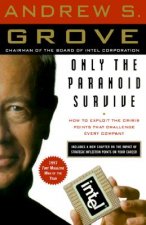
Only the Paranoid Survive
75.60 zł -13 % -
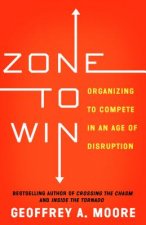
Zone to Win
80.94 zł -6 % -

HBR Guide to Thinking Strategically (HBR Guide Series)
92.43 zł -7 % -

Leading Digital
133.86 zł -4 % -

My Life in Full
70.25 zł -14 % -

This Is Service Design Thinking
163.70 zł -11 % -

Gamify
157.55 zł -

Happiness (HBR Emotional Intelligence Series)
84.87 zł -6 % -

7 Powers
117.33 zł -

Frugal Alpaca Farmer
117.13 zł -5 % -

Well-Designed
143.64 zł -6 %
zadowolonych klientów
Od roku 2008 obsłużyliśmy wielu miłośników książek, ale dla nas każdy był tym wyjątkowym.
Copyright! ©2008-24 libristo.pl Wszelkie prawa zastrzeżonePrywatnieCookies



 21 milionów książek
21 milionów książek Dostawa 10.99 zł
Dostawa 10.99 zł (32) 444 93 66 (8-15.30h)
(32) 444 93 66 (8-15.30h)